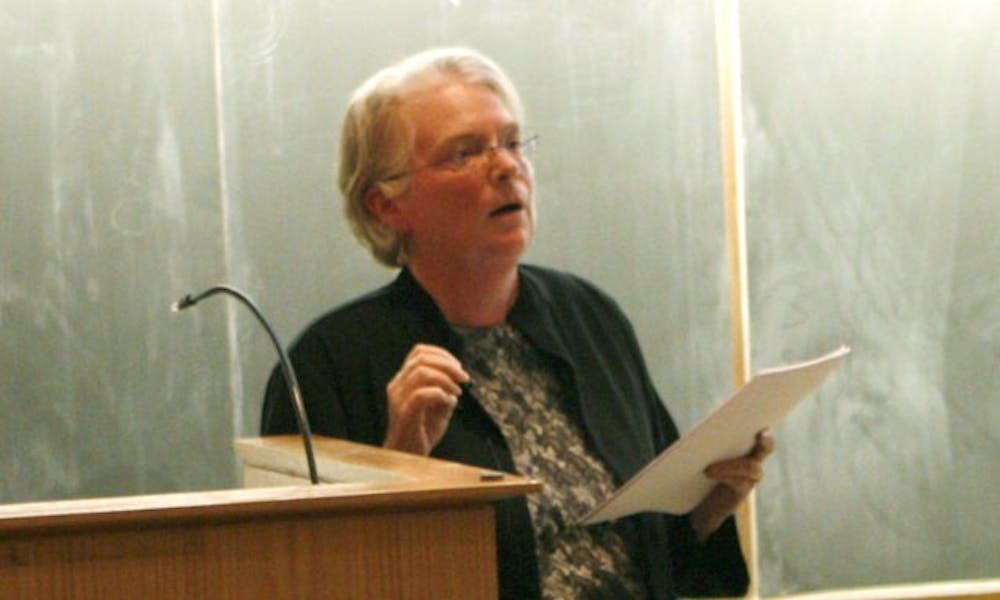Library catalogues soon may not be the only place to leaf through primary sources.
As a part of the Provost Lecture Series, Lynn Hunt, Eugen Weber Professor of modern European history at the University of California, Los Angeles, gave a lecture Tuesday describing the digital revolution in the humanities.
“Digitization of primary sources has changed the landscape of teaching and learning” Hunt said.
Hunt defined the digital revolution as a process of digitizing primary sources, such as historical documents, in an attempt to make them easier and more accessible. She discussed both the positive and negative effects this revolution could have on the study of humanities as a whole.
Hunt said digitization makes documents more available to people than before—documents that were only accessible to the most distinguished historical researchers are now available to a much larger population.
But digitization could also expand resources for resources, too.
An important product of digitization is “optical character recognition,” which functions like a search engine that uses key words to compile a list of sources with those words. As a result, scholarly projects are completed much faster than before, Hunt said. Not only does it speed up researching, it provides opportunities for historians to stumble upon something that they did not know before, thus starting a new chain of research.
She added that the online availability of historical documents helps to establish links between different researchers and historians and helps facilitate collaborations through online tools like blogs.
Hunt also emphasized the down side of a digitization revolution, specifically referring to the financial costs of necessary software.
“Better equipment and software is more expensive,” Hunt said.
Online historical archives, such as “The Valley of the Shadow,” have historical documents about two different communities during the American Civil War, and thus cost millions of dollars to create.
The enormous cost of digitization leads to questions of wealth disparities among universities and students as well as the balance between the benefits and the costs.
Hunt also acknowledged the complications and difficulties of applying online technology to historical primary sources.
“Technology is demanding and always evolving. Ordinary folks will never catch up,” Hunt said.
But no matter the positives and negatives, Hunt said the online transfer of primary sources into the digital world is not going away.
“The digitization revolution is here to stay, and we need to refashion it in the humanities to serve us the best,” she said.
Get The Chronicle straight to your inbox
Signup for our weekly newsletter. Cancel at any time.

